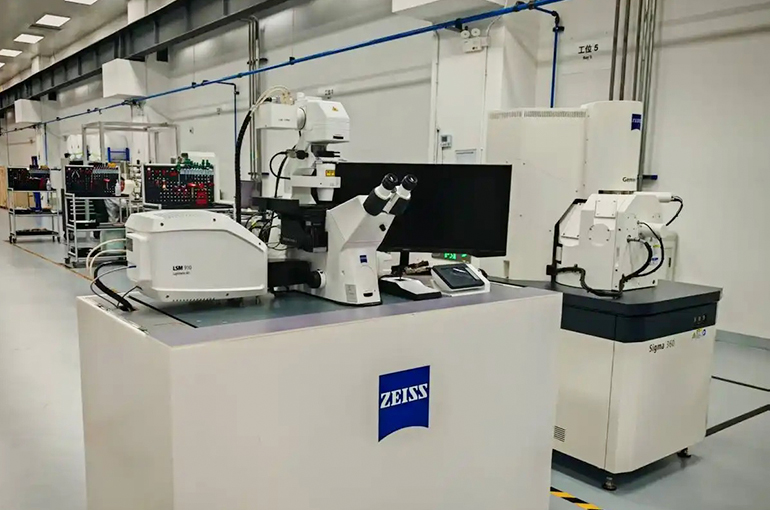 Zeiss' Plant in China's Suzhou Doubles Revenue in First Year, Leads Global Microscope Shipments
Zeiss' Plant in China's Suzhou Doubles Revenue in First Year, Leads Global Microscope Shipments(Yicai) Sept. 8 -- German optics giant Zeiss has doubled its local revenue in Suzhou within the first year of operating a new factory in the eastern city, as the facility has become the world’s largest source of microscope shipments.
Even though China is Zeiss' largest and fastest-growing market globally, the revenue growth at the new Suzhou plant still exceeded expectations, Frank Xie, chief operating officer of Zeiss China, said to Yicai at the factory's first-year anniversary celebration. Before this, the producer of eyeglasses and medical equipment already operated another factory in Suzhou.
Xie emphasized that confidence in the Chinese market remains key to Zeiss' continued investment. The Suzhou facility integrates high-end optical product manufacturing with research and development, supplying both domestic and international markets.
At the event, Zeiss unveiled three high-end microscopes developed at the Suzhou plant, showcasing the firm’s latest innovations in optical and electron microscopy imaging. Zeiss is now the first international company to locally manufacture such advanced microscopes commonly used in medical and semiconductor applications.
China's progress in intellectual property protection and its robust supply chain, especially in the Yangtze River Delta, where Suzhou is located, enabled the company to launch production of these high-end products in under six months, Xie noted.
He added that China’s evolving manufacturing landscape is prompting more sophisticated demands from local customers. As a result, products that meet Chinese requirements often align with global needs, giving the Suzhou factory a strategic role in shaping Zeiss' international competitiveness.
Healthy competition drives technological advancement, Xie said, adding that Zeiss competes in China just like any local enterprise. This dynamic environment helps keep the firm at the forefront of global innovation. For example, Zeiss improved the inspection speed of its electric vehicle battery testing equipment from one minute to just five seconds to meet rising client expectations, the COO explained.
Wang Miao, vice president of microscopy in China, told Yicai that Zeiss welcomes local competition, which encourages the firm to bring more high-end technologies to China. Zeiss China is evolving into an innovation hub, Wang said, citing the role of the Shanghai R&D Innovation Center in developing localized solutions that serve both domestic and global markets.
Zeiss' localization strategy has shifted from a headquarters-driven model to one where its Chinese team participates in every stage, from market expansion to product development, production, and service.
Xie noted that Chinese customers have particularly high standards for product performance, prompting even stricter quality control measures at the Suzhou facility than at Zeiss' German factories. For instance, Zeiss produces coordinate measuring machines in China, India, Germany, and the US, but many clients specifically request units made in China due to their perceived reliability, he concluded.
Editors: Tang Shihua, Emmi Laine